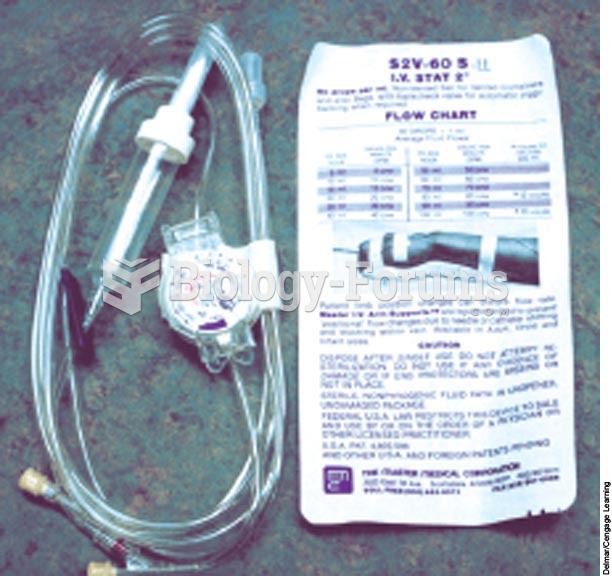|
|
|
Everyone has one nostril that is larger than the other.
The first successful kidney transplant was performed in 1954 and occurred in Boston. A kidney from an identical twin was transplanted into his dying brother's body and was not rejected because it did not appear foreign to his body.
More than 34,000 trademarked medication names and more than 10,000 generic medication names are in use in the United States.
People with alcoholism are at a much greater risk of malnutrition than are other people and usually exhibit low levels of most vitamins (especially folic acid). This is because alcohol often takes the place of 50% of their daily intake of calories, with little nutritional value contained in it.
Approximately 25% of all reported medication errors result from some kind of name confusion.
 Sublingual medication administration. Photograph of a male patient placing a nitroglycerine tablet u
Sublingual medication administration. Photograph of a male patient placing a nitroglycerine tablet u
 Carefully check the hose between the MAF sensor and the throttle plate for cracks or splits that ...
Carefully check the hose between the MAF sensor and the throttle plate for cracks or splits that ...





